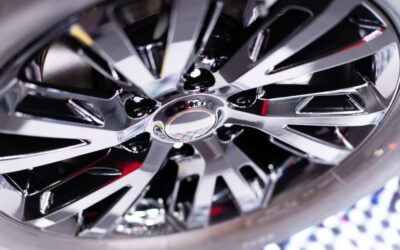Few things in the motoring world are more misunderstood than road tax.

This is your essential guide to road tax. We’ll explain what it is (and what it isn’t!) and outline some of the factors that will determine just how much you have to pay.
What Is Road Tax?
Road tax is collected to fund the upkeep of the roads.
The biggest misconception about road tax is that only drivers have to pay it. The fact is that road maintenance is largely funded out of general taxation. This means that everyone has to pay it – car drivers, motorbike drivers, tractor drivers, cyclists, and even pedestrians.
When most people think about road tax, they’re actually thinking about vehicle excise duty. This is the tax that only drivers have to pay, and as well as road tax, it might also be known as car tax.
So What’s Vehicle Excise Duty, Then?
It’s a running cost for your car, and it must be paid on nearly all vehicles registered in the UK, driven in the UK, or kept on a public road.
Vehicle Excise Duty (VED, but let’s call it car tax) is calculated based on your car’s CO2 emissions. Up until 1 October 2014, all drivers had to display a tax disc in their windscreen. This acted as proof that the driver had paid their duty. Nowadays, though, all tax records are stored in a central database. To check if a driver has paid their duty, a patrolling officer just has to look up the car registration.
How Much Car Tax Will I Have to Pay?
It depends on the car you drive! All vehicles are placed in one of 13 car tax bands, A to M. Vehicles in band A are low emission, so are exempt from car tax. Vehicles in band M are high emission, so are taxed much higher.
If you drive a car in a higher tax rate, you may have to pay slightly more for your car tax in your first year of ownership. According to the Government’s website, this is designed to send “a stronger signal to the buyer about the environmental implications of their car purchase.” The implication is clear – if you want to avoid paying too much car tax, think green!
Here’s how the car tax system works:
| Car Emission Band | Theoretical CO2 Emissions | Standard Cost (£) | Cost for First Year (£) |
| Band A | Up to 100 g/km | 0 | 0 |
| Band B | 101-110 g/km | 20 | 0 |
| Band C | 111-120 g/km | 30 | 0 |
| Band D | 121-130 g/km | 105 | 0 |
| Band E | 131-140 g/km | 125 | 125 |
| Band F | 141-150 g/km | 140 | 140 |
| Band G | 151-165 g/km | 175 | 175 |
| Band H | 166-175 g/km | 200 | 285 |
| Band I | 176-185 g/km | 220 | 335 |
| Band J | 186-200 g/km | 260 | 475 |
| Band K | 201-125 g/km | 280 | 620 |
| Band L | 226-255 g/km | 475 | 840 |
| Band M | Over 225 g/km | 490 | 1065 |
Please note that car tax figures usually increase in line with inflation each year. These figures are correct at the time of writing.
Can I Avoid Paying this Car Tax?
Some car owners are exempt from paying car tax. If you drive a zero-emission car that cost less than £40,000, you don’t have to pay any car tax. Similarly, if your car was registered between 1 March 2001 and 1 April 2017, and if it produces less than 100 g/km CO2, then you’re also exempt from paying.
If you have a disability, you don’t have to pay car tax on mobility scooters. The benefits you receive can also affect the car tax you pay. For example, if you receive a War Pensioners’ Mobility Supplement, or if you receive the higher rate of the mobility component of the Disability Living Allowance, you’ll be exempt from paying car tax.
Finally, “historic vehicles” are exempt from vehicle excise duty. This includes steam vehicles and cars that are more than 40 years old. And if you have a car that you no longer drive, you’ll have to apply for a Statutory Off Road Notification (SORN) if you want to avoid paying any tax. Keep in mind that once the SORN has been applied for, the car must not be driven or even kept on a public road until the car has been taxed again.
Choosing the Car That’s Right for You
Vehicles in the higher tax bands might be large vehicles (like vans, trucks, and lorries) or they might be high performance sports cars. They’ll be hard to handle, and almost entirely impractical for everyday use.
Cars in these high tax bands will be expensive to run in more ways than one. Beyond the high car tax rates, you’ll pay a lot more for fuel (you don’t produce a lot of emissions without burning a lot of fuel!) and you’ll pay a lot more for car insurance too.
High performance cars cost a lot more to insure. This is because, as they’re so fast, they’re seen as being more likely to get involved in accidents. And if they are involved in accidents, repairs will cost a lot more than they would for a standard, everyday car.
So if you want to save money on all aspects of driving – including car tax, fuel, maintenance, repairs and car insurance – it makes sense to choose a low emission car that’s safe and easy to handle.
Read our guide to choosing the car that’s right for you here.



